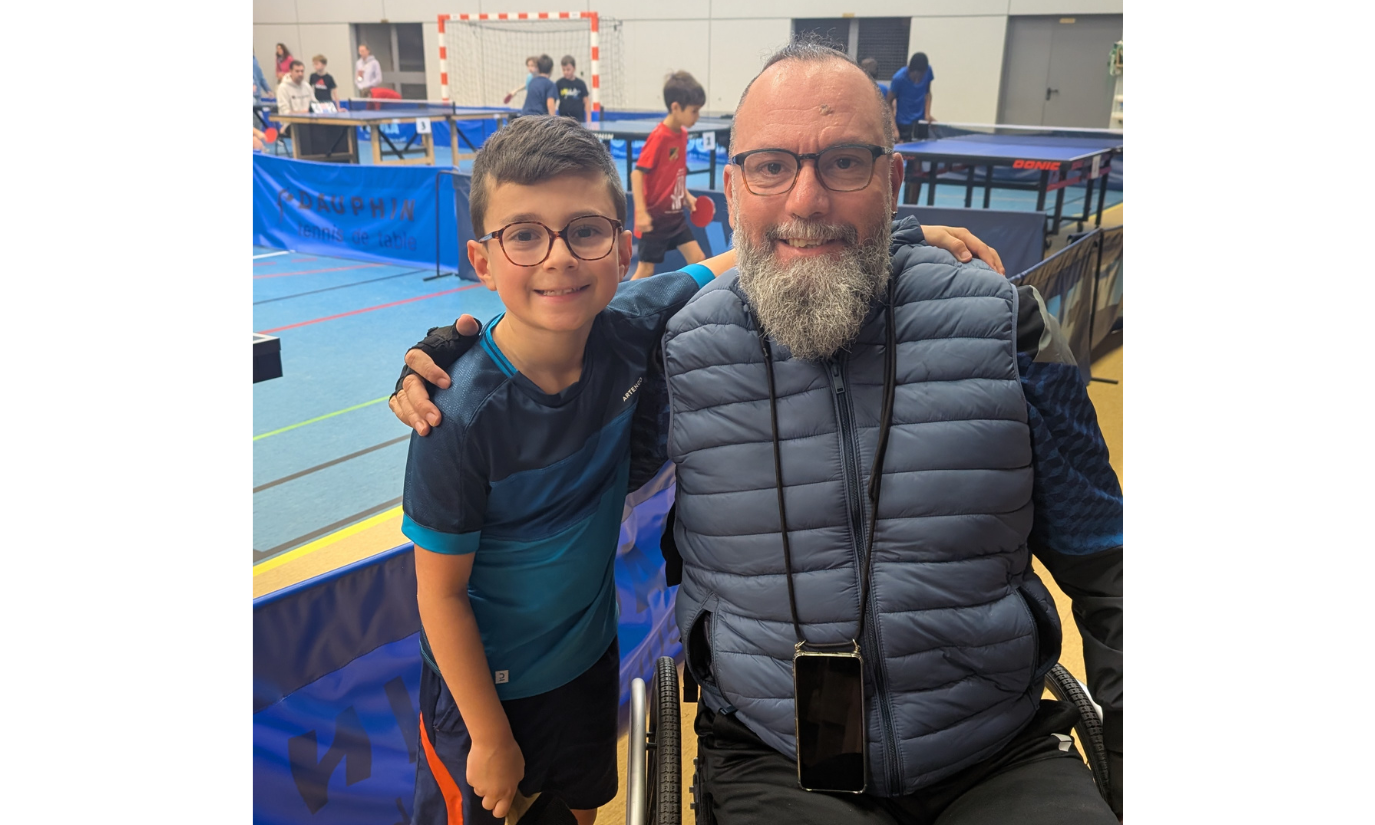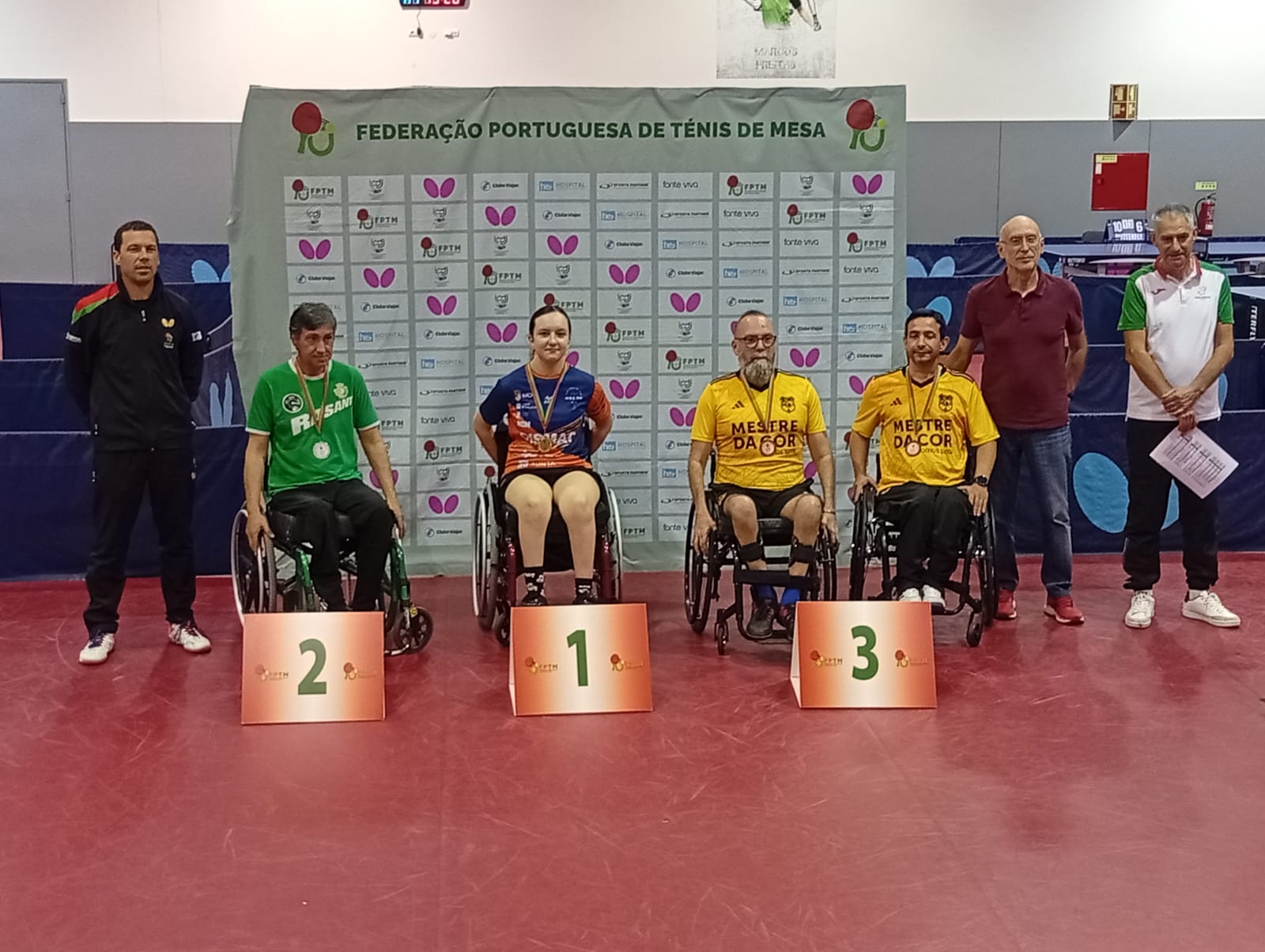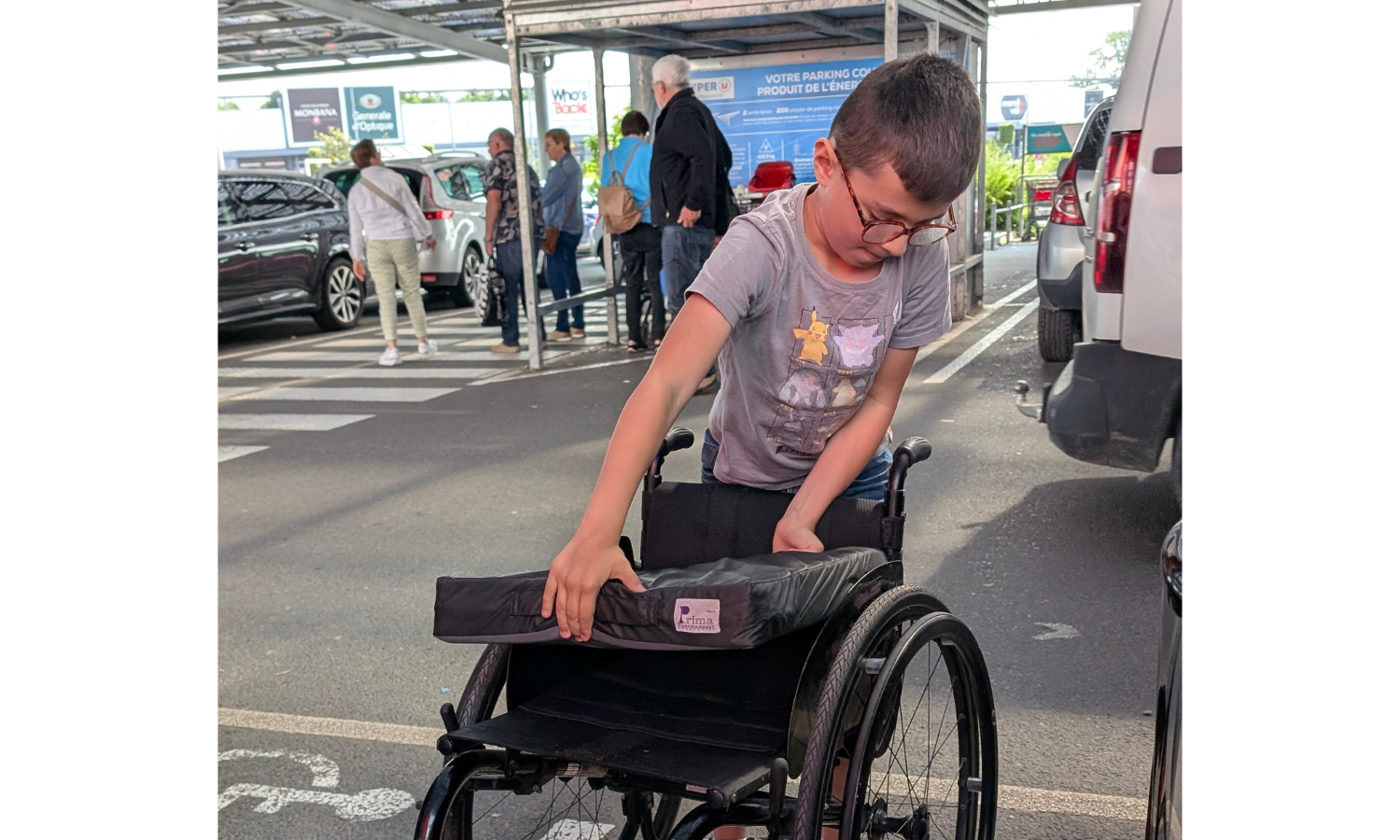Joao Cardoso, Brittany, France, Living with CMT
 Joao Cardoso never imagined that he would be riding through the town of Brittany, France, in a wheelchair, while his eight-year-old son, Edgar, pedals his bike alongside him.
Joao Cardoso never imagined that he would be riding through the town of Brittany, France, in a wheelchair, while his eight-year-old son, Edgar, pedals his bike alongside him.
Because of Joao’s Charcot-Marie-Tooth disease, fatherhood looks a little bit different — but for Joao, it means always showing up and giving it your all, no matter what life throws at you.
Joao was first told that he may have CMT as a child in Portugal, though his doctor was unsure given the limited understanding of this disease. It wasn’t until 20 years ago that Joao received official confirmation. Three years ago, genetic testing further confirmed his subtype as CMT2A. Joao’s CMT was the result of a spontaneous genetic mutation, making him the first person in his family with the disease. Because CMT is hereditary, Joao’s CMT was passed down to one of his two sons, Joao Jr., now 26.
Three years ago, Joao Jr. made the decision to start using a wheelchair due to the pain of walking and experiencing frequent falls. While father and son experience CMT differently, Joao respects his son’s decision. “The most important thing I can give him is the tools to live.”
Edgar, Joao’s youngest son, is active and full of energy. Though he does not have CMT — he has not shown any symptoms, but genetic testing will confirm when he is older — Edgar understands his father’s struggles and is a constant source of support. “He adapts and helps me very well. For him, it was complicated at first because he was used to seeing me walk, and now I can’t. But he’s okay with it now and helps me with things every day.”
Eight months ago, Joao broke his knee for the third time, leaving him wheelchair-bound. Because CMT2A is one of the more aggressive forms, Joao’s muscles have wasted away, leaving him fragile to any breaks. Even though Joao is now confined to a wheelchair, he doesn’t let that stop him — he just views it as another obstacle he will learn to adapt to, something he’s had to do his entire life.
“I am used to having this disease and since I was a kid I was forced to always adapt. Life is learning to do new things and learning to live again and it’s not easy; with CMT you must always be ready to learn new things and adjust.”
Joao has had to make some additional changes to his daily life. He is unable to write anymore, and using a computer has become increasingly more difficult as the disease continues to progress. Still, with the support of his family, he finds ways to keep moving forward.
With that familial support, Joao and his family relocated from Portugal to France several years ago. Joao explained that France is a good country for people with disabilities and he receives more support than he did in Portugal. “My life changed when I came to France.”
That support includes access to specialized braces and care.
Though Joao is unable to walk long distances, he is able to use his walker for short stretches and distances and hopes he will one day be able to drive again once he has a specialized sport wheelchair and adapted car.
 Joao also found hope and motivation through sports. Joao is a Paralympic table tennis champion and is now training to compete internationally from his wheelchair.
Joao also found hope and motivation through sports. Joao is a Paralympic table tennis champion and is now training to compete internationally from his wheelchair.
“When I started playing seven years ago, I couldn’t do it. I had no strength — so I adapted and got a racket to help me, and now I am the only one in the world at the Olympic level who can do the forearm with the backhand using the racket.”
Joao began training in his wheelchair in January, shortly after his third knee break. For the first time in his life, he felt something was too difficult for him. He grabbed the strength from his family and continued to work at it, going from training one hour a week in January to 13 hours per week now.
Joao is also able to enjoy playing table tennis against his son Edgar — who refuses to go easy on him. They train together one to two days per week. “He plays against me, not as someone with a disability, but as someone he wants to beat. He wants to win, and I don’t go easy on him,” Joao says with a laugh.
As a father, Joao has created a home where a disability is not a barrier and the word “impossible” is not in the vocabulary; instead, he views disabilities as a difference to be embraced. He and Edgar will go out together for over two miles, Joao in his wheelchair and Edgar on his bike. “He doesn’t see the disability of his father, because his father is with him.”
Joao goes on to explain that in the beginning, he was in too much pain, and it was hard to accept being in a wheelchair. But after he finally accepted his new reality, he was okay.
“Edgar’s school is a little more than a half mile from the house. It’s not easy to reach — I have to take the road — but we go to practice together and afterward he walks home while I’m next to him in my wheelchair. It is good that his father is present and with him.”
 At school, Edgar now notices and helps his classmates who may need some extra support. “The most important thing I can teach him is to understand the needs of those around him.”
At school, Edgar now notices and helps his classmates who may need some extra support. “The most important thing I can teach him is to understand the needs of those around him.”
Still, even with all of the support Joao receives from his family, CMT still brings constant challenges. “The worst thing about having CMT is that I can say today I’m good, but tomorrow I don’t know. You don’t know how you will be one day to the next, it’s always progressing.”
Joao goes on to further explain that with CMT, you are always forced to constantly adapt — every minute of the day. “One thing that so many people ask me every day is, ‘Are you used to being a disabled person?’ and I tell them no, I’m forced to be disabled. No one who is disabled is used to this; they work every day adapting their lives. I just smile through the pain. Smiling is my protection when I want to cry.”
His advice to other parents whose children have faced a CMT diagnosis? “Try not to do anything about it and just give your children a normal life. I always say I am normal, and the way I was walking was the normal way for me. I am not a disabled person; I just do things another way. So, if you are a parent of a child with CMT or another disease, talk to your children like they are capable of doing anything. We are not different than the others, we just do things differently.”
As Joao looks to the future, he is hopeful for a cure — not only for himself, but for everyone living with this disease.
“To find a cure would be a relief for all the people struggling with this disease; and I know I am waiting for a cure. I think of all the parents and children who won’t be in pain anymore due to this disease that is constantly evolving.”
To those living with CMT, Joao offers a message of resilience.
“Don’t give up. The road is long — the road is very long — but if you choose your right path, you can do the same things. CMT can be very difficult because there is physical and mental pain, but you must adapt. Tomorrow is the answer – don’t give up and learn to understand your body and do something with your body. Do a sport you want, and you must do something with your body, it’s very important. When you have CMT you must work your body and try to forget the word ‘impossible.’ For me, there is no impossible.”
CMTRF is working tirelessly to end this disease for Joao, and others with CMT, and has recently funded a CMT2A project with ASHA Therapeutics that holds hope for a treatment. To learn more about the project, click here.
This Father’s Day, please consider donating on behalf of the Cardoso family — so they can one day live free from this disease. Every gift brings us closer to a cure. Donate today at cmtrf.org/donate.
To learn more about Joao’s journey, connect with him on Instagram at https://www.instagram.com/joao.tthandi/
